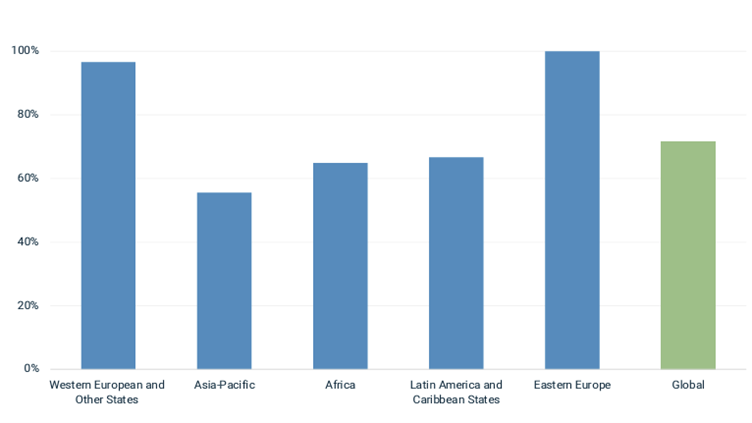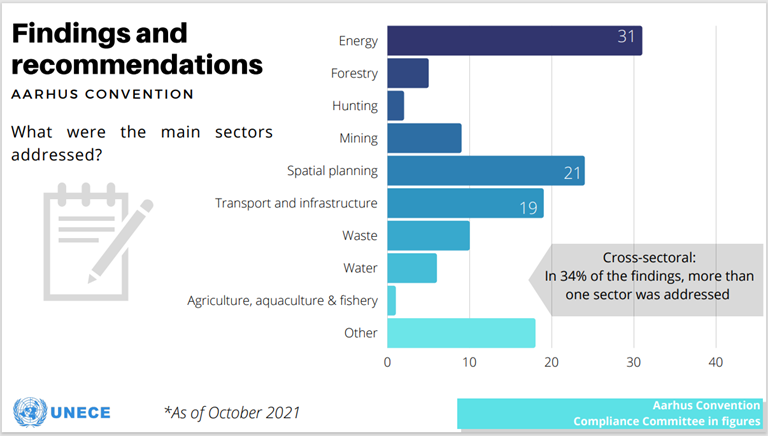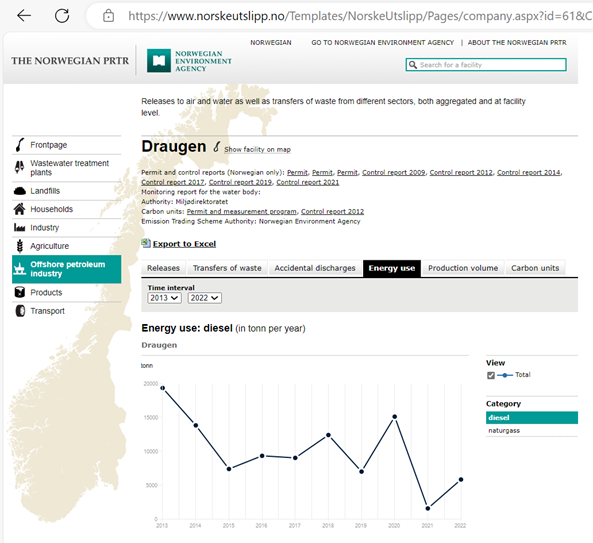
The world is facing a number of fundamental environmental challenges, such as climate change, pollution from chemicals and wastes and loss of biodiversity. While everyone is affected by the current environmental challenges to some degree, those facing poverty and discrimination live usually closer to a pollution source and bear a higher burden of environmental degradation due to their work and living conditions, limited awareness of environmental risks and inadequate healthcare.
Addressing critical environmental challenges and protecting the most vulnerable people require profound transitions towards sustainable development. The effective engagement of civil society at all levels greatly reinforces and complements the ability of Governments to address these problems. Improved access to information and public participation in decision-making contribute to public awareness of environmental issues, give the public the opportunity to express concerns without any retaliation, address inequalities and enable public authorities to take due account of such concerns, which ultimately leads to enhanced quality and the implementation of decisions.
The Aarhus Convention and the Protocol on PRTRs thereby provides a solid and comprehensive framework for Governments to engage the public effectively in implementing the 2030 Agenda for Sustainable Development. With 46 UN Member States and the European Union now Parties to the Aarhus Convention and with 37 UN Member States and the European Union Parties to the Protocol on PRTRs, both instruments are widely recognized as the leading example of the implementation of principle 10 of the Rio Declaration on Environment and Development. Both treaties are open for accession by any UN Member State and attract the interest of States outside the UNECE region – as instruments to which such States might eventually accede, as an inspiration for developing similar instruments in other regions or as a model for development of national legislative and policy frameworks (Figure 14).

Based on reports by Parties and stakeholders, the Aarhus Convention and the Protocol on PRTRs have seen several important achievements in implementing Sustainable Development Goal 16 across the region and beyond.
Laws and practices have been revised to bring them into line with the Convention and the Protocol on PRTRs. There is a growing body of compliance jurisprudence based on the Convention and the Protocol on PRTRs and the legislation that implements it (Figure 15).

With respect to protection of environment defenders (target 16.10, indicator 16.10.1), the Special Rapporteur on Environmental Defenders under the Aarhus Convention undertook a wide range of activities to assist Parties and interested Member States to ensure the safety of environmental defenders. This included in-person visits to several countries, the consideration of complaints concerning the persecution, harassment and penalization of environmental defenders, providing input on the development of new instruments and guidance to protect environmental defenders, consultations with vulnerable environmental defenders, speaking engagements, awareness raising and promotional activities.
With respect to access to information (target 16.10, indicator 16.10.2), the majority of Parties have already adequately addressed the Convention’s provisions in this area in their national legislation.
Parties have also established and are operating a number of special structures facilitating implementation of access to environmental information and public participation in decision-making provisions. Many Parties have made considerable efforts to develop and further use modern digital technologies to promote e-governance and open data for environmental matters. Electronic tools (environmental portals, e-meeting tools, applications, e-notifications) are increasingly used to disseminate environmental information, including in case of emergencies, and to hold public consultations.35
35 See UNECE. Electronic information tools case studies.
The Protocol on PRTRs introduces a new dimension in that it implies reporting obligations for the private sector and may therefore be seen as a tool promoting corporate accountability in a specific context as exemplified for Norway (Figure 16). PRTR reporting systems invite the public to participate in the regulatory system, both by monitoring the environmental performance of facilities and sectors and by engaging in dialogue with companies and government agencies on ways of improving such performance.
Furthermore, the Protocol on PRTRs promotes integration of different information systems breaking down the silos across the sectors in tracking emissions in air, water and soil and transfer of wastes. This is critical for achieving SDGs, energy transition and monitoring green and circular economies.

With regard to public participation in decision-making (target 16.6 and 16.7), Parties continue to sharpen procedures for public participation in decisions, as well as widen the scope of decisions and decision-making stages where public involvement is required. For environmental impact assessment procedures, participation is increasingly ensured by Parties in the screening procedure, at the scoping stage, and at the stage of draft environmental impact assessment decision prior to its adoption. Other types of decisions affecting the environment, where Parties made efforts to ensure public participation, include building and planning decisions, integrated environmental permits/authorisations, decisions on the environmental protection measures, decisions on authorization of projects that may have a significant impact on Natura 2000 sites, decisions on nature and landscape protection, decisions on forest management, environmental licensing, decisions on the lifetime extension, and decisions related to management of radioactive waste.
With regard to access to justice (target 16.3, indicator 16.3.3), Parties have made some progress in addressing challenges faced by the members of the public in this area by: (i) increasing admissibility of public interest litigation in environmental matters; (ii) increasing review by courts and other review bodies of the substantive legality of challenged decisions, acts and omissions; (iii) measures introduced to remove or reduce financial barriers; and (iv) promotion of awareness-raising and specialization of judiciary and other legal professionals in environmental matters. The Parties are also encouraged to continue developing specific statistical arrangements to collect, coordinate, aggregate and process the information from various statistic providers needed for monitoring the implementation of article 9 of the Convention and therefore contributing to achieving the relevant target 16.3.
A special and active role in this sphere is played by Aarhus Centres, which have been established in 15 countries including South and Eastern Europe, Caucasus and Central Asia with leading support by OSCE. Aarhus Centres cover both the national and local levels by offering guidance to the public, performing awareness-raising activities, facilitating access to information and public participation, and assisting Governments in the performance of their functions and in cooperating with the public.
Furthermore, non-governmental organizations (NGOs) have been leading actors in monitoring and facilitating the implementation of the principles of the Convention throughout the UNECE region as well as in relevant international forums. They often are valuable partners in disseminating information, in raising awareness and in helping countries build the necessary capacities for greater access to information, public participation in decision-making and access to justice.
By promoting transparency and public participation in international decision-making, the Aarhus Convention is helping to improve a wide range of international processes dealing with matters relevant to environmental concerns such as climate, health, chemicals, trade, finance and biodiversity. It has been also used as reference for the review of safeguard and information policies of other agencies of the United Nations as well as international financial institutions.
The Aarhus Convention has already acted as a model example for initiatives in other regions and forums aimed at applying the principles contained in the Convention, namely the Escazu Agreement – Regional Agreement on Access to Information, Public Participation and Justice in Environmental Matters in Latin America and the Caribbean. Where requested and within available resources, the secretariat and Parties to the Convention are offering advisory support to the process in Latin America and the Caribbean and to initiatives in other regions and forums. The UNECE has also been supporting the United Nations Environment Programme in its efforts to promote the Bali guidelines on the application of Principle 10 and other relevant activities.